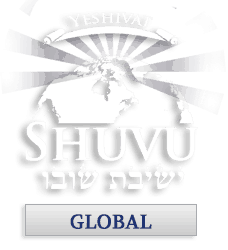צֶ֥דֶק צֶ֖דֶק תִּרְדֹּ֑ף לְמַ֤עַן תִּֽחְיֶה֙ וְיָֽרַשְׁתָּ֣ אֶת־הָאָ֔רֶץ אֲשֶׁר־יְהֹוָ֥ה אֱלֹהֶ֖יךָ נֹתֵ֥ן לָֽךְ:
Justice, justice shall you pursue, that you may live and possess the land the Lord, your God, is giving you.
Deuteronomy 16:20
This week’s portion contains one of the most important commandments in all of Torah. Interestingly, the commandment is translated in different ways. It begins with a repetition: Justice, justice, you shall pursue. Alternatively: Righteousness, righteousness, you shall pursue. These two translations actually mean vastly different things, so we must ask ourselves, what is the actual meaning of the text?
צדק (tzedek) can mean justice or righteousness, which is part of the reason why there are differences in translations. So for clear understanding, as always, we must know the context of Moses’ statement.
The portion begins with Moses’ recap regarding the appointment of judges. Verse 19 continues with the commandment that we shall not pervert justice. However, the word for justice used in verse 19, משפת (mishpat), is not the same word that is used in verse 20. It is clear that there is a deliberate difference between justice in verse 19 and justice in verse 20. Since צדק (tzedek) is intentionally different in verse 20 from משפת (mishpat) in verse 19, we conclude that verse 19 must mean righteousness rather than justice.
Righteousness, righteousness, you shall pursue. Justice is not the focus of intent, righteousness is. We are to pursue righteousness. The method through which we are to pursue righteousness when there is doubt, or conflict, is through the judges.
Many times it is taught that the purpose of the judges is to resolve conflict between people; only people. At first glance this seems plausible, but deeper inquiry leaves us with the question, why, then, is the term righteousness used? The answer is fairly simple when we take into account the nature of conflict between people that would come to the judges for resolution. Obviously, torts, lawsuits, would be part of the conflicts taken to the judges to be resolved. But there is more involved in the concept of righteousness that just torts.
In order for us to pursue righteousness, we must also bring questions of interpretation and understanding Torah to the judges. Only in this way may we pursue righteousness through the judges. Moses teaches that this is the way of interpreting and understanding Torah for the nation of Israel. The judges are to determine Israel’s interpretation of the Torah through resolution of conflict and argument. As cases are brought before, and resolved by, the judges, case law is developed. This case law is passed down orally through the generations. Under Ezra, the importance of resolutely following the Torah finally comes to the forefront of the collective consciousness of Israel. This case law, these understandings, become organized in the next few centuries and are finally placed categorically following the contributions of Hillel and Shammai. After Hillel and Shammai, details are added and adjustments are made, but the basic construct of the case law is in place. This case law came to be known as the Oral Mesorah, or the Oral Law. Over the next few centuries after Yeshua, this Oral Law was written down in the form of the Mishnah and the Talmud. However, in Yeshua’s time, the basic foundation of the Mesorah was already organized.
The Torah command for Israel to determine how to follow the written Torah of Sinai is contained in the command: Righteousness, righteousness, you shall pursue. We are to determine how we follow Torah through the system of argument and judges. These judges, righteous leaders of justice, play an important role throughout the entire history of Israel. In Matthew 23, Yeshua confirms that the role of the judges in his time was upheld by the Pharisees and Torah teachers. Yeshua instructs us that they sit in the seat of Moses, be careful to do everything they say.
